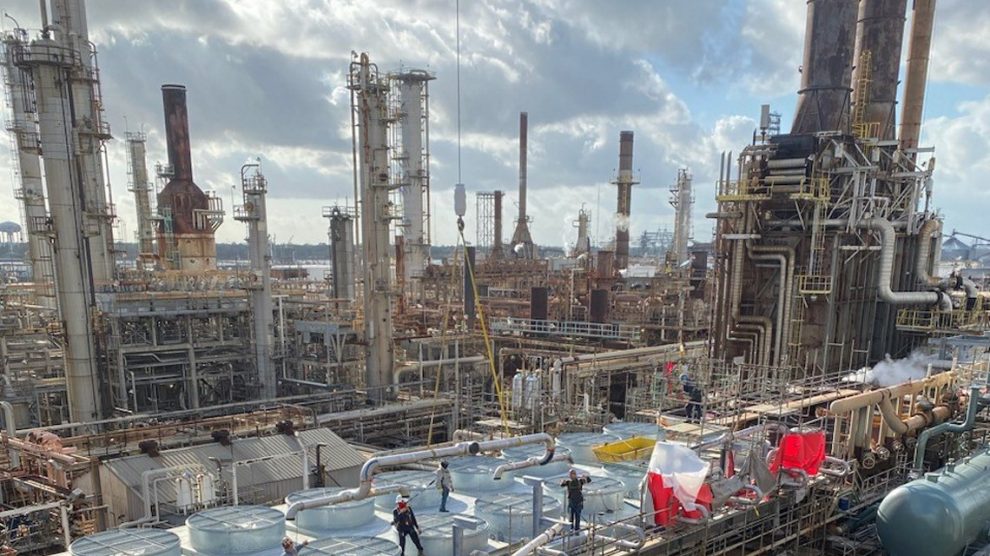The Eni-PBF deal. On Thursday, the Italian energy giant announced it struck a joint partnership with US-based PBF Energy. The two companies will jointly manage the St. Bernard biorefinery in Louisiana through a 50-50 partnership.
- Eni’s Sustainable Mobility division will contribute $835 million (plus an additional $50 million, subject to meeting milestones) and provide expertise in biorefining operations, supply and marketing.
- PBF will also offer its know-how of the American market and continue to manage project execution, and serve as the operator once construction is complete (within the first half of 2023).
- The facility aims to process about 3.7 million barrels per year of HVO (Hydrotreated Vegetable Oil, mainly based on oily waste and residues, commonly known as “renewable diesel”).
Words from the top brass. The joint venture will allow Eni to enter into the growing US biofuels market along with a strong partner such as PBF, said Stefano Ballista, CEO of Eni Sustainable Mobility. The division will thus expand its biorefining capacity following the results achieved in its pioneering Italian projects.
- “We do believe the role of HVO will strongly contribute to the decarbonisation of road transports, including hard-to-abate heavy-duty sectors, as it leverages existing infrastructure and can immediately fuel existing vehicle fleets.”
- “We’re excited to enter this strategic partnership with Eni Sustainable Mobility, a global leader in biorefining,” said PBF President Matthew Lucey. “The project will utilise existing processing infrastructure and diverse inbound and outbound logistics and is ideally situated to support growing demand for low-carbon fuels.”
Keyword: tech neutrality. Eni’s strategy to The Italian government, which is Eni’s biggest shareholder through State lender CDP, has been voicing its concern for the EU’s decision to set binding targets to accelerate electric vehicles adoption – by essentially outlawing the registration of non-zero emission cars and vans in 2035.
- In 2024, when its political weight is likely to be bigger within the EU, the Meloni government intends to push changing the EU’s emission reduction mandate to 90% instead of 100%, to give industries a chance to adapt.
- As Professor Marco Cantamessa told our sister website, it would be best to allow the industry to explore all possible technological solutions to decarbonisation instead of de facto enforcing standards that isolate EVs as the one and only solution.
Image: Eni Sustainable Mobility





